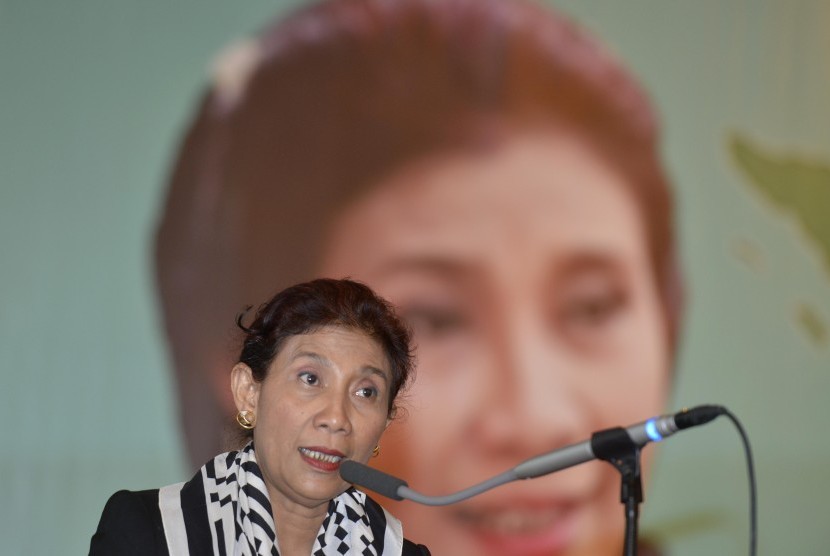REPUBLIKA.CO.ID, JAKARTA -- Indonesia has yet to optimally exploit the potential of its marine and fisheries sector although it has the advantage of becoming a global maritime axis, stated a cabinet minister.
"Indonesia has geographically become a global maritime axis," Marine Affairs and Fisheries Minister Susi Pudjiastuti noted here on Tuesday.
Susi affirmed that eight months after having assumed the ministerial post, she had gained an insight into several aspects related to the marine and fisheries sector.
There are several policy approaches that need to be improved.
"But some others need to be reinforced," the minister remarked.
She emphasized that several policies were effective including the moratorium on issuing licenses to fishing vessels of over 30 Gross Tonnage (GT), which had successfully reduced the number of poaching cases in Indonesia.
The country's fishery sector had shown a positive trend after the imposition of several policies in the sector, the minister earlier stated.
"The issuance of ministerial decrees has yielded positive results," she emphasized.
She pointed out that as a positive outcome, fish supplies across various local markets and regions have increased.
"Apart from that, fish prices have begun to go down, though it is still higher than the average prices in the international market," she noted.
The minister is optimistic that the price would be at par with that in the international market, and fish would become a substitute to meat, which until now is still imported.
Secretary General of the Indonesian Longline Tuna Association (ATLI) Dwi Agus remarked that the volume of fish catch, particularly tuna, has been increasing since the issuance of several ministerial regulations in the marine and fisheries sector.
The volume of catch in April 2015, which was recorded at 628 thousand tons, has increased 80 percent to 1.095 million tons in May, he added.


